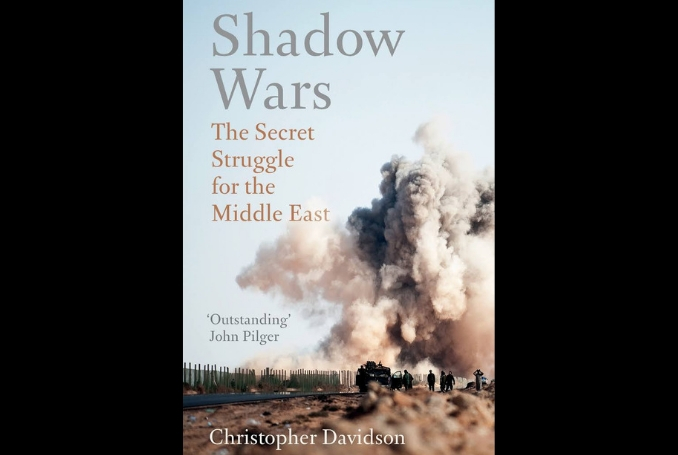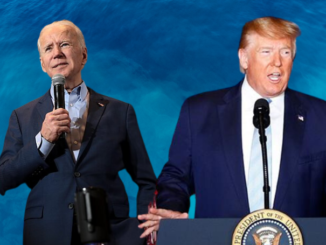
(Shadow Wars: The Secret Struggle for the Middle East. Christopher Davidson. Oneworld Publishing, U.K., 2016.)
Written in response to the ‘Arab Spring’ initiated in Tunisia in 2011, Shadow Wars – The Secret Struggle for the Middle East, is a powerful indictment of the western neoliberal economic/political order. Christopher Davidson has gathered a huge amount of information from many sources that support his overall argument,
“…the primary blame for not only the failure of the Arab Spring, but also the dramatic and well-funded rise of Islamic extremist organizations since the late twentieth century – including the deadly al-Qaeda and now the blood curdling ’Islamic State’ – must rest with the long-running policies of successive imperial and ’advanced capitalist’ administrations and their ongoing manipulations of an elaborate network of powerful national and transnational actors across both the Arab and Islamic worlds.”
Davidson then summarizes future prospects indicating the Arab Spring having been foiled,
“…has also been covertly redirected into a pretext for striking at other enemies…the same powers that have distantly ruled the region for hundreds of years are now making sure their grip gets even tighter.”
The work starts with a brief overview of counter-revolutionary patterns where the deep state attempts and often succeeds in countering movements that threaten their power. Examples range from the British Jacobite counter-revolution to reinstate the divine right of kings under papal authority, the French revolution, on up through the Russian Bolshevik revolution and the Spanish revolution before the Second World War.
Davidson then quickly focuses on the Middle East and the history of British imperialism, advances to the modern era and U.S. imperialism. The book is a wonderful read – in a nasty sort of way – with Davidson drawing in many sources, well referenced, detailing how the imperial powers of the west have operated in the region.
Highlights
Without detailing his overall storyline, several ideas were standout from my perspective.
First off is the breadth and strength of British imperialism and its manipulations in order to maintain some form of imperial stability. This morphs into U.S. imperial desires, and while the U.S. receives much critical analysis of its attempts at control, it is made obvious that the U.K. has not really given up on its imperial desires, only now subordinate to the power of the U.S. The main thrust of the interference for both is the desire of western governments wanting “stability”, either military, clan-based, or religious, as long as the resources were under control by the west.
In consideration of the imperial “divide and conquer” agenda the whole history relates the ongoing and continued use of jihadis to extend the empire’s control. They serve multiple purposes from creating a reason to attack a particular region, as well as using them as a means to disrupt and attack.
Not surprisingly, Saudi Arabia is viewed as being the wellspring of the jihadi movement, supplying both the Wahhabi belief system as well as the financial support for the various jihadi groups. They are not alone, as Davidson clearly shows how the Gulf States, the former British Trucial states UAE, along with Qatar, Bahrain, and Kuwait provide both financial, logistical, and media support (and evasions) for the jihadis. Turkey with its pretensions for caliphate further complicates the scenarios.
The final standout has to be the many interactions between the local groups, their efforts to recruit jihadis from abroad (from Indonesia, Pakistan, the former Russian states among others), and the many different branches of the U.S. empire – financial, military, political, corporate.
Published in 2016, Shadow Wars obviously misses the success of Russia, Iran, Hezbollah, and to a small degree a recalcitrant Turkey in being the essential factors in defeating the actual physical caliphate if not all ISIS jihadis. Davidson ends balancing on the apparent increasing power of the caliphate with its broad global support (regardless of media and political rhetoric) while noting a few successes in regaining small amounts of land from the caliphate.
Regardless, it is a very strong read, a strong indictment of the British and U.S.empires and how they use their media, financial power, and military power in order to use both covert and overt mechanisms to maintain control of Middle East resources.
Baseline Misses
There are two missed components in this work, but given the overall powerful presentation, they do not affect the main premise of western imperial interference even though they are part and parcel of it.
As I have noticed with some other writers on this general topic, Israel is a missing element. It is mentioned in a few brief comments, such as the one with the IDF admitting providing medical aid to ISIS fighters. However, in consideration of both British and U.S. imperial projects in the region, nothing is said.
Both countries, in particular, Britain at first, view the establishment of Israel as an “outpost” for western powers in order to control the region. The military power of Israel combined with its political power in the U.S. and EU makes it a significant factor in western control of the region’s resources with the most important being oil.
Perhaps Davidson along with other authors take into consideration the backlash that might be received from various state actors if Israel’s participation was highlighted. As I indicated, beyond this, it is still a very powerful and significant view of western interference in the region.
The other miss is oil – and as I have indicated in other writings, it is not really the oil that is of concern, but its use as support for the US$. With Saudi Arabia having agreed to sell oil only in US$, which is of particular benefit after the U.S. went off the gold standard, it has become a powerful player as well in U.S. domestic politics. Without the dollar support, the U.S. would more than likely lose its preferential position as being the global fiat currency.
The Middle East and the western states then play a double game against each other – supporters of the Washington consensus financial system while also supporting various jihadi groups that the powers that be pretend to oppose but mainly manipulate for their own desires at control. Democracy and freedom are not truly desired; stability and control are the ultimate goals.
Otherwise, Shadow Wars is an excellent book detailing all these double dealings. Christopher Davidson is to be commended for his wonderful work – and I would hope a follow-up perspective will be written now that Russia, Iran, Hezbollah and Turkey have managed for now to gain the upper hand in Syria.
– Jim Miles is a Canadian educator and a regular contributor/columnist of opinion pieces and book reviews to Palestine Chronicles. His interest in this topic stems originally from an environmental perspective, which encompasses the militarization and economic subjugation of the global community and its commodification by corporate governance and by the American government.








